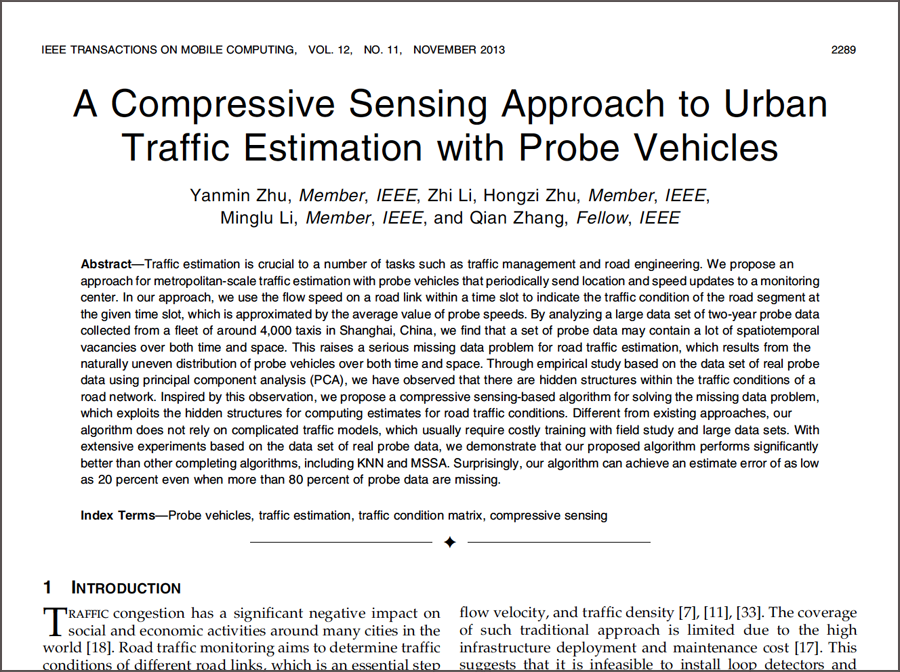

A Compressive Sensing Approach to Urban Traffic Estimation with Probe VehiclesYanmin Zhu, Zhi Li, Hongzi Zhu, Minglu Li and Qian ZhangIEEE Transactions on Mobile Computing (IEEE TMC), 12(11), pp. 2289-2302, November 2013. |
|

|
Traffic estimation is crucial to a number of tasks such as traffic management and road engineering. We propose an approach for metropolitan-scale traffic estimation with probe vehicles that periodically send location and speed updates to a monitoring center. In our approach, we use the flow speed on a road link within a time slot to indicate the traffic condition of the road segment at the given time slot, which is approximated by the average value of probe speeds. By analyzing a large data set of two-year probe data collected from a fleet of around 4,000 taxis in Shanghai, China, we find that a set of probe data may contain a lot of spatiotemporal vacancies over both time and space. This raises a serious missing data problem for road traffic estimation, which results from the naturally uneven distribution of probe vehicles over both time and space. Through empirical study based on the data set of real probe data using principal component analysis (PCA), we have observed that there are hidden structures within the traffic conditions of a road network. Inspired by this observation, we propose a compressive sensing-based algorithm for solving the missing data problem, which exploits the hidden structures for computing estimates for road traffic conditions. Different from existing approaches, our algorithm does not rely on complicated traffic models, which usually require costly training with field study and large data sets. With extensive experiments based on the data set of real probe data, we demonstrate that our proposed algorithm performs significantly better than other completing algorithms, including KNN and MSSA. Surprisingly, our algorithm can achieve an estimate error of as low as 20 percent even when more than 80 percent of probe data are missing.
|